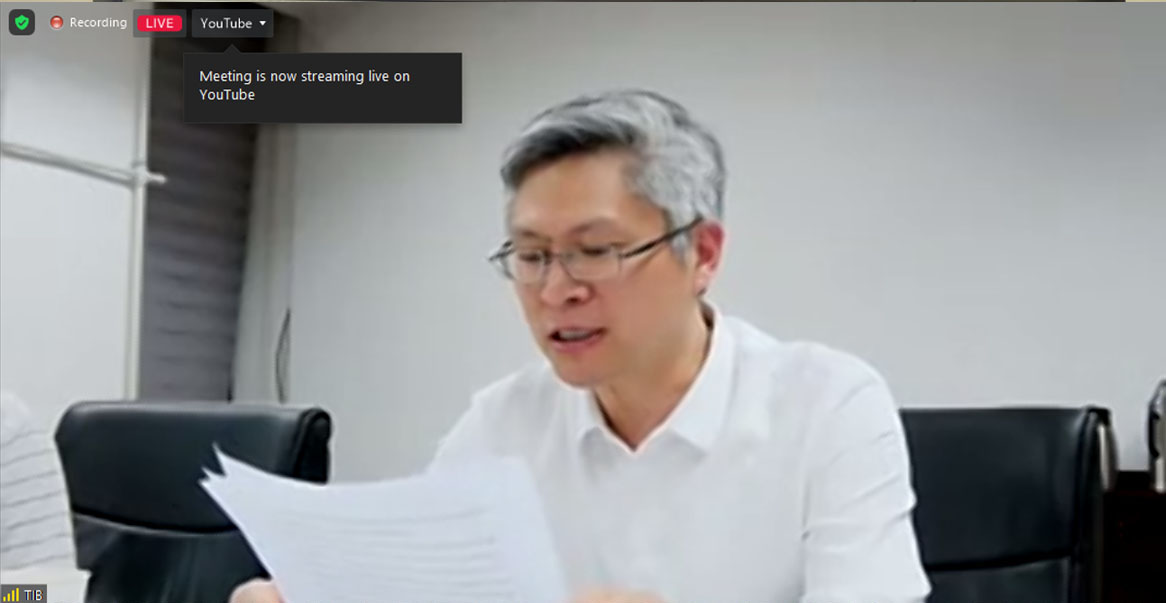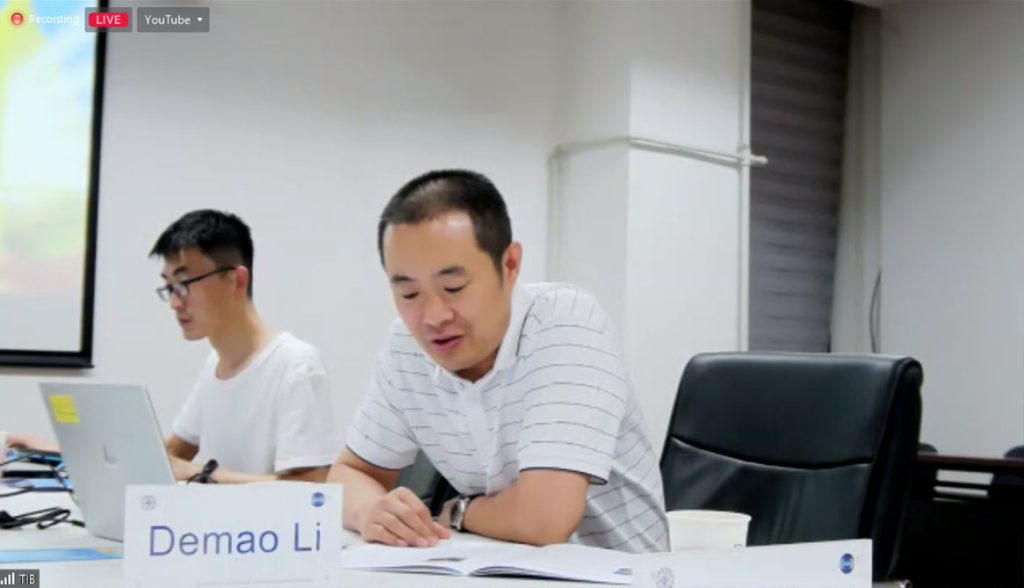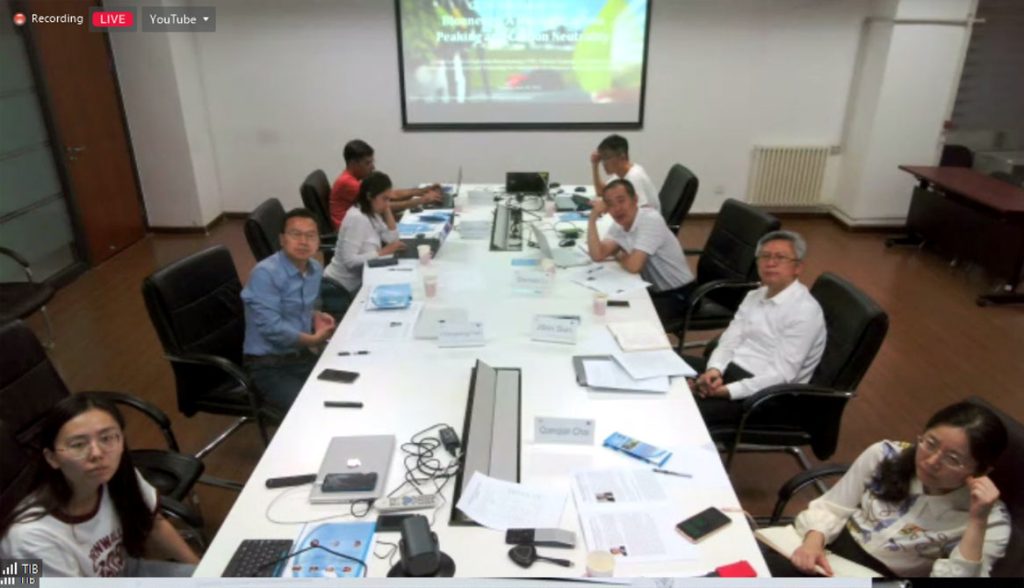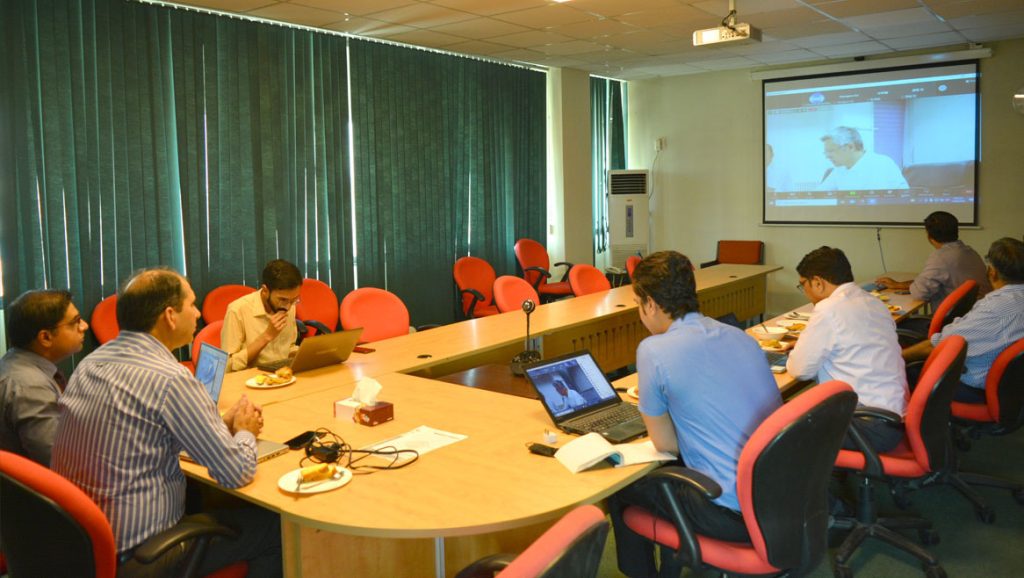COMSATS Joint Centre for Industrial Biotechnology (CCIB) holds workshop to discuss prospects of utilizing bioenergy as an alternative energy resource.
COMSATS Joint Centre for Industrial Biotechnology (CCIB) organized an online workshop on ‘Bioenergy: A Road to Carbon Peaking and Carbon Neutrality’ under its Joint R&D Group on Bioenergy. Held on 14th June 2022, the Workshop was aimed at encouraging meaningful dialogue between scientists and exploring potential cooperation for joint R&D to meet industrial needs. Over a 100 scientists and researchers from China, Egypt, Iran, Jordan, Pakistan, Tanzania, Thailand, and Türkiye participated in the Workshop.
The event was inaugurated by Prof. Dr. Jibin Sun, Director of CCIB, and Deputy Director-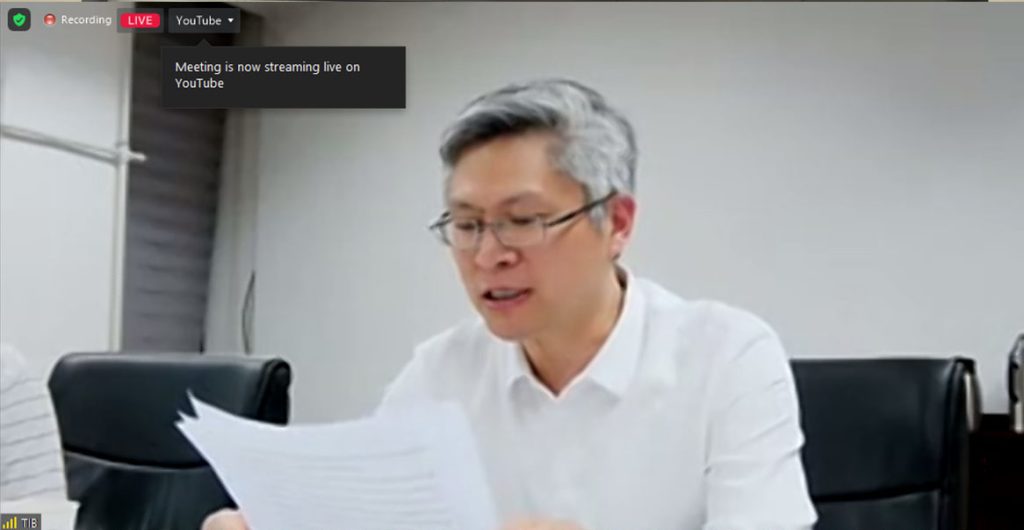 General of the Tianjin Institute of Industrial Biotechnology (TIB), China. Prof. Sun remarked that industrial revolution has resulted in increased use of fossil fuels, which has compromised the planet’s health. He considered bioenergy as an important renewable energy resource having the potential to cope with the challenges of resource scarcity and environmental deterioration. Prof. Sun hoped that the workshop would achieve its objectives by providing collaboration opportunities for joint research and development in this vital field.
General of the Tianjin Institute of Industrial Biotechnology (TIB), China. Prof. Sun remarked that industrial revolution has resulted in increased use of fossil fuels, which has compromised the planet’s health. He considered bioenergy as an important renewable energy resource having the potential to cope with the challenges of resource scarcity and environmental deterioration. Prof. Sun hoped that the workshop would achieve its objectives by providing collaboration opportunities for joint research and development in this vital field.
In his opening remarks, Prof. Dr. Ashraf Shaalan, Chairperson of COMSATS Coordinating Council (Former President, National Research Centre of Egypt), noted that the global energy consumption has increased dramatically and over the next two decades the demand is expected to rise to 44%. He was of the view that conventional energy resources must be replaced with renewable ones, such as bioenergy. He lauded CCIB’s efforts to enhance cooperation among COMSATS Member States in the field of industrial biotechnology.
In his keynote talk on ‘Bioengineering beyond Cells to Enable a Fair and Sustainable 21st Bio-century’, Prof. Michael C. Jewett, Director of Center for Synthetic Biology at Northwestern University, USA, underscored the significance and applications of Synthetic Biotechnology (SB). He discussed the following topics during his talk: acetone production; cell-free systems to identify acetone; enzyme reaction schemes in model microorganism; cell-free protein synthesis driven framework (iPROBE); 3-HP production; and titer, rate, and enzyme expression (TREE).
Prof. REN Nanqi, Professor at Harbin Institute of Technology, China, delivered the second keynote talk titled ‘Perspective of Fermentative H2 Production Technology from Biomass for Commercialization’. Establishing the significance of green hydrogen as an alternative energy resource, Prof. Nanqi informed that his research team is working on hydrogen production system optimization using comparative genomics, gene expression, and pathway and network stimulation. The various topics discussed by Prof. Nanqi during his talk included: fermentative H2 production; Bio-H2 from biomass; Bio-H2 for commercialization; and bio-hydrogen and electro-hydrogen production, among others.
During his presentation on ‘Production of Energy and Climate Friendly Bio-based Products & Ecosystem Restoration of Mountainous Region’, Prof. Habib Bokhari, Vice Chancellor of Kohsar University, Pakistan, discussed potential solutions to current global challenges especially in the context of Pakistan. He stated that Pakistan is facing major challenges, inter alia, in the form of untimely floods, heat waves, decreased rainfall, food insecurity, melting glaciers, rising temperatures, forest fires, biodiversity loss, and poor solid waste management. To mitigate such challenges, Prof. Bokhari mentioned that various programmes, projects and methods have been introduced, such as genetically modified arsenic-based biosensors for water purification, bio-conversion of waste food, environmentally friendly eco-tourism, and precision and smart agriculture.
Prof. Azize Ayol, Professor at Dokuz Eylul University, Türkiye, delivered a presentation on ‘Syngas Production from Biomass and Microbial C1 Gas Conversion Technologies’ in which she discussed types and conversion methods of biomass. Further, she informed about an on-going research project on ‘sustainable energy recovery from treatment plant sludge, green wastes, and olive pomace via gasification process: investigation of beneficial usage alternatives of gasification products’ that is being run jointly by TÜBİTAK and Environment, Atmosphere, Earth and Marine Sciences Research Grant Committee (CAYDAG) of Türkiye.
Prof. Mehrdad Azin from the Iranian Research Organization for Science & Technology (IROST), Iran, delivered a presentation on ‘Bio-refinery Processes for Production of Biofuels: Steps Paved by Iran’, in which he shed light on the bio-refinery processes used for production of biofuels. He also informed the participants about the Qeshm Microalgae Biorefinery (QMAB) which is utilizing advanced technology to provide environmentally friendly solutions. The biorefinery, he mentioned, is also cultivating unique and patented microalgae species in order to provide benefits to pharmaceutical, nutraceutical, cosmetics, and biofuel industries.
Mr. Victor Su from Beijing Shougang LanzaTech New Energy Technology Co., Ltd, China, delivered a presentation titled ‘Producing Ethanol and Protein from Carbon Containing Industrial off-gas through Synthetic Biotechnology’. He informed that his company is one of the leading bio-manufacturing companies in the country, providing production solution to country’s ‘protein bottleneck’ problems. He mentioned “Ethanol Fuel” as company’s main product in the market which, inter alia, is being used in sustainable packaging and polyester yarn.
During the presentation on ‘Construction of Fungal CBP Technology for Lignocellulose Biorefinery’, delivered by Prof. TIAN Chaoguang, Professor at TIB, the participants learnt about the traditional cellulosic biomass conversion; consolidated Bio-Processing (CBP); transformation tools for the fungus denovo; genome scale metabolic model; utilization of biomass derived sugars in filamentous fungi; and direct conversion of lignocellulosic biomass.
Briefing the participants about the progress of CCIB’s Joint R&D Group on Bioenergy, the Group Coordinator, Prof. LI Demao, informed that two R&D projects are currently being run; one on organic waste and the other one titled ‘The Belt and Road Fellowship Initiative of Tianjin Synthetic Biotechnology Innovation Capacity Improvement Project’. The former, he informed, is being carried out in partnership with COMSATS University Islamabad (CUI), Pakistan.
Subsequent to the presentations, intellectual discussions took place among participants and subject experts emphasizing technical exchanges and resource sharing. Prof. Bokhari proposed initiating pilot-scale studies on biomass and bio-materials to help boost bio-energy resources. Prof. Azin suggested exchange of technologies among the members of the Joint R&D group on Bioenergy.

